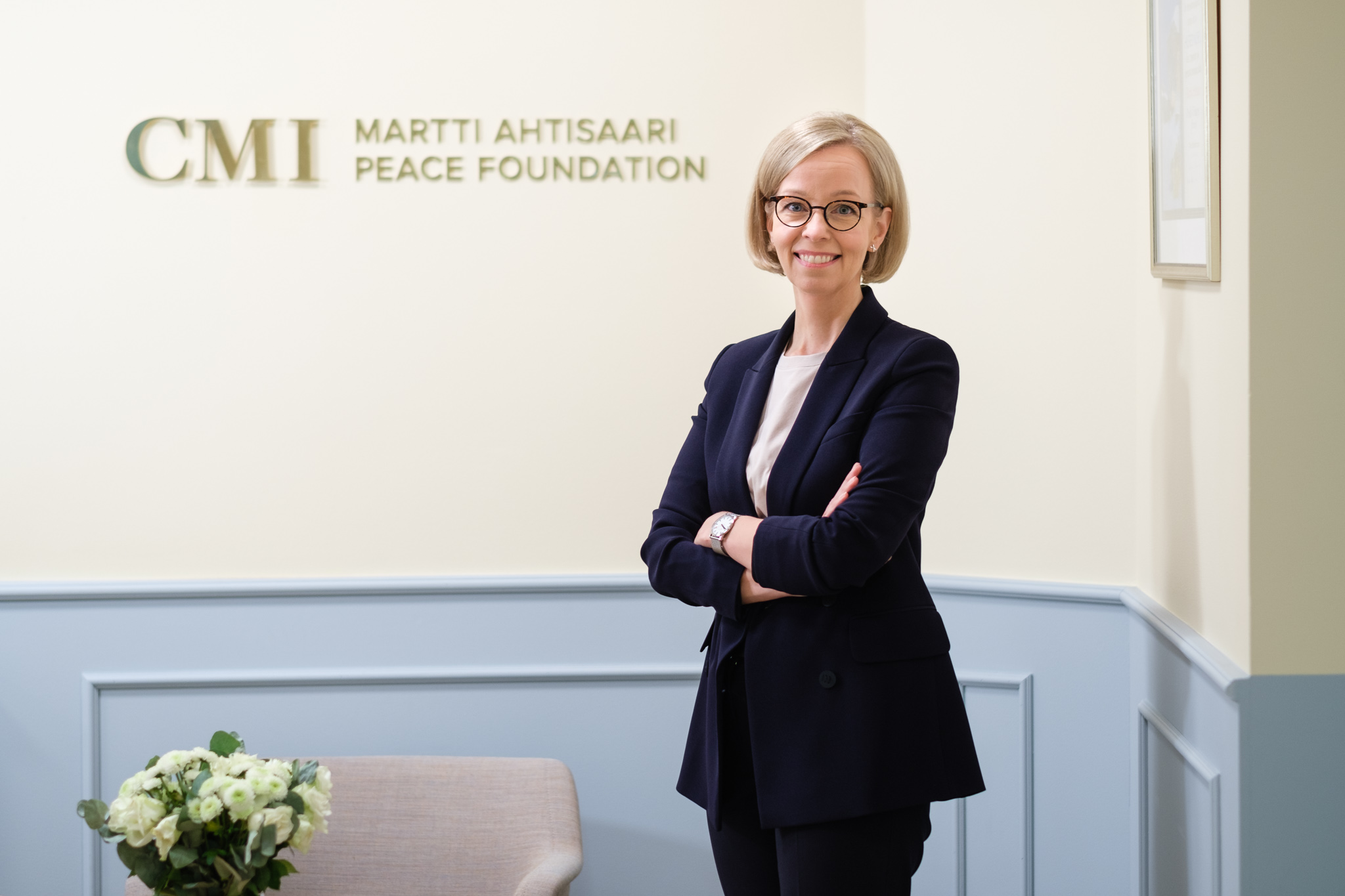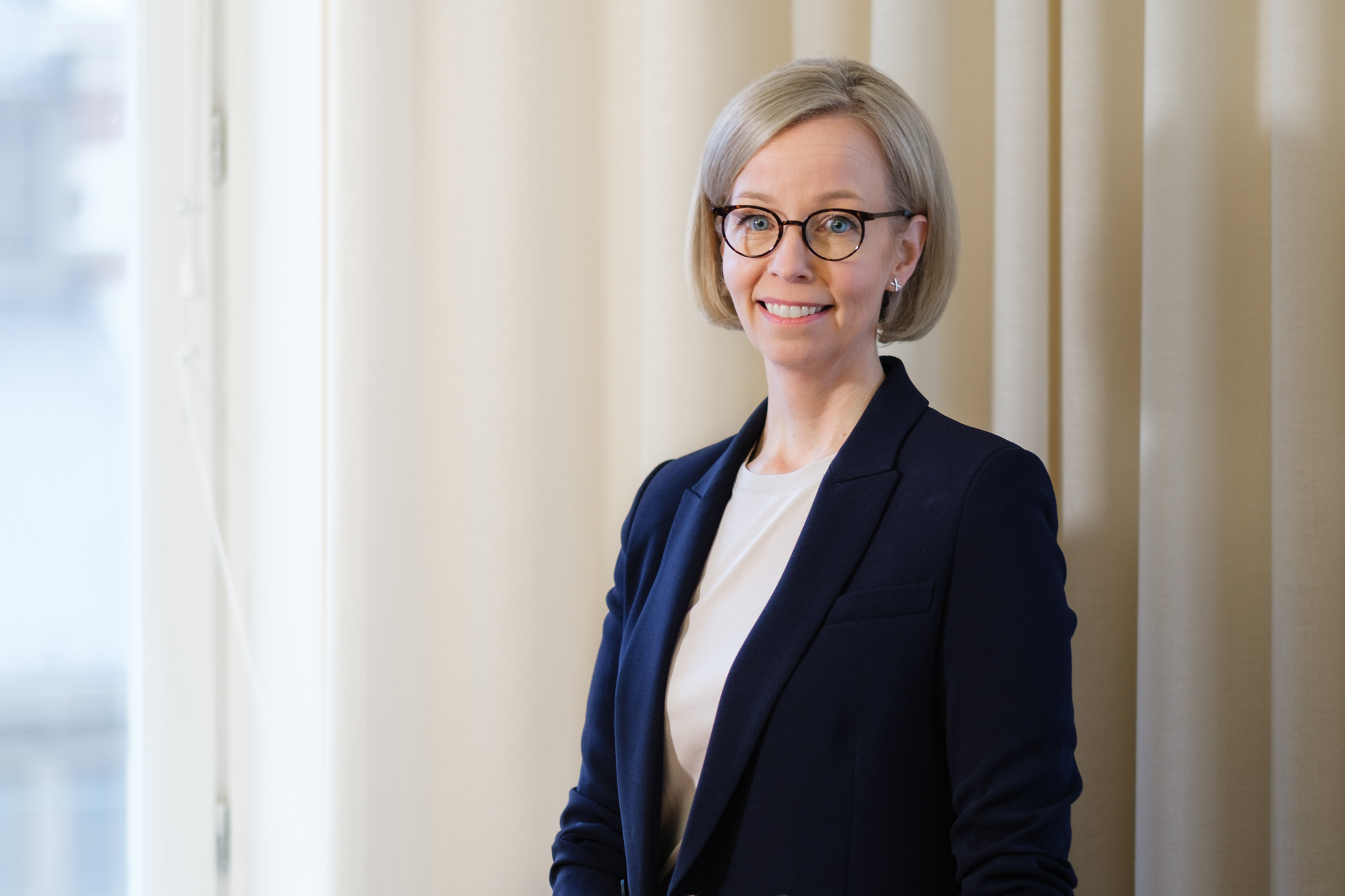Hanna Klinge: “CMI cherishes President Ahtisaari’s strong legacy as an advocate of equality”
The internationally significant and well-known CMI – Martti Ahtisaari Peace Foundation is a peace mediation organization founded by President Martti Ahtisaari in 2000. CMI’s Deputy CEO Hanna Klinge dreamed of studying in the Peace and Conflict Studies program in Sweden since upper secondary school.

Klinge’s student days and interest in international politics were partially marked by the Gulf War and the balance of power between the superpowers. Even though she was not able to realize her dream because of her situation in life at the time, she still ended up working in the field through the development of various partnerships and cultural relations. During her work in the British Council, Klinge focused on topics such as resilience, democracy and inclusion. Klinge has worked at CMI for six years, and she has served as the Deputy CEO since 2021.
The world is in turmoil, and peace mediation is becoming more professional
Klinge says that professionalization is a major trend in the field, and CMI’s development reflects the developments in the entire field. The number of conflicts around the world is on the rise, and this is reflected in the number of requests received by the organization. However, CMI simply cannot take part in everything.
“We have numerous projects underway, covering four geographical areas. CMI’s thematic priorities are women inpeacemaking & digital peacemaking. When the parties to a conflict or an international organization contact us with a request, we assess what kind of added value we could provide for them. We never impose ourselves or try to offer a ready-made solution, but rather support the locals in their own peace process. Local ownership was also one of President Ahtisaari’s core principles.”
CMI has around 80 permanent employees in Helsinki and Brussels and about 100 experts working under a consultancy contract in twenty countries.
“Right from the start, President Ahtisaari’s goal was to create an organization that can stand firmly on its own two feet and develop its expertise. Especially during the last decade, there has been a shift away from the image of a heroic peace broker – oftentimes a white Western man – who arrives on the scene to resolve troubles and takes center stage during the signing ceremonies”, Klinge says.
The state of Finland is CMI’s largest financier. The organization also receives project funding from the EU, other countries and some private donors.
“Finding funding for projects is not really a challenge, but it is bureaucratic and closely controlled, as it should be. We cannot use this funding to develop our organization. We are currently raising funds for a Peace Fund to improve our capacity to respond to rapidly evolving crisis situations.”
President Ahtisaari’s legacy: meeting people as equals
President Ahtisaari’s way of thinking, based on Nordic values, is the underlying theme in all of CMI’s activities.
“Inclusion and gender equality were President Ahtisaari’s key tenets. His eternal optimism and way of treating everyone equally, from trainees to the executive team, really left an impression. President Ahtisaari was well-known for this also around the world.”
But CMI has also had to acknowledge that the work for equality and to get women included in decision-making positions in peace processes takes time.
“There is a lack of common understanding around the world of how important this question is. People working in the field are even starting to get a bit frustrated about how long it will take to get these issues integrated into our DNA. But we must keep this question on the top of our priority list. The important thing is to not compromise on anything.”
Gender equality is a cross-cutting theme in all of CMI’s operations. The organization has had a dedicated Women in Peacemaking expert team since 2013.
“We are also delighted for our partnership with the IGEP Award. This is a great platform to make CMI’s work for women’s rights visible. We have a tremendous amount of appreciation for the Award and the partnership.”

Will peace technology become Finland’s new trademark?
The phenomenon of digital peacemaking has been around for quite some time, and CMI has kept a close eye on its development.
“President Ahtisaari also asked how we could ensure that the impact of technology in the context of war is recognized, and how it could also be used as a tool in peace mediation.”
The coronavirus pandemic did its part in promoting the use of technology in mediation.
“We noticed that the participation of women may increase if the meeting is virtual. In environments that are dangerous for women, their participation may increase when using digital channels. In general, technology helps us expand the range of stakeholders whose opinions we want to hear.”
Finland also has excellent preconditions for cross-sectoral cooperation in the field of digital peace mediation.
“Our know-how in both peace mediation and technology is top-notch, but we need to work to bring them together more effectively. I am sure that there is still much that we can achieve in this field.”


